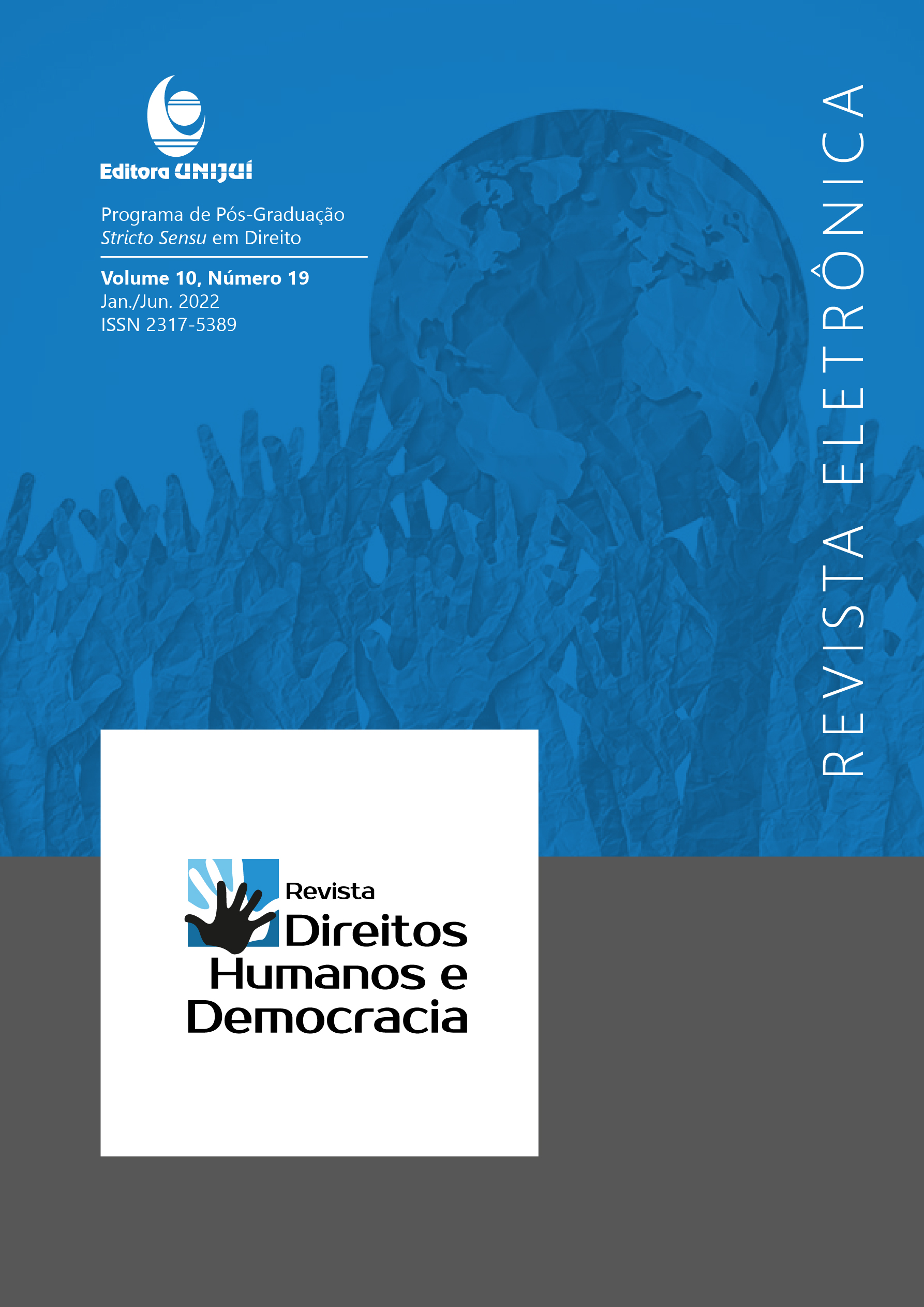Peculiaridades do alistamento eleitoral e do direito ao voto do eleitor indígena
DOI:
https://doi.org/10.21527/2317-5389.2022.19.10802Palavras-chave:
Constituição; alistamento; obrigatoriedade; voto; indígena.Resumo
O objetivo da reflexão proposta é informar e esclarecer as peculiaridades que envolvem o alistamento eleitoral do indígena para o efetivo exercício do direito ao voto. A Constituição Federal impõe a obrigatoriedade do alistamento eleitoral e do voto de forma expressa em seu texto. O voto e o alistamento, além de um dever cívico, são direitos inerentes aos cidadãos para que possam participar de forma efetiva dos rumos políticos de seu país. Os indígenas têm os mesmos direitos e deveres de qualquer outro cidadão, assim o Estado não pode criar situações ou colocar obstáculos que dificultem seu engajamento na escolha de seus representantes ou na disputa a um cargo político eletivo. Cumpridos os requisitos constitucionais e os dispostos na legislação eleitoral, é direito fundamental a sua participação na construção e no fortalecimento da jovem democracia brasileira. A busca por maior espaço no campo político, além de garantia constitucional, mostra-se uma condição necessária para que a sociedade reconheça seus direitos mínimos a uma existência digna como minoria ética. A pesquisa é bibliográfica e documental.
Downloads
Publicado
Como Citar
Edição
Seção
Licença
Copyright (c) 2022 Revista Direitos Humanos e Democracia

Este trabalho está licenciado sob uma licença Creative Commons Attribution 4.0 International License.
Ao publicar na Revista Direitos Humanos e Democracia, os autores concordam com os seguintes termos:
Os trabalhos seguem a licença Creative Commons Atribuição 4.0 Internacional (CC BY 4.0), que permite:
Compartilhar — copiar e redistribuir o material em qualquer meio ou formato;
Adaptar — remixar, transformar e criar a partir do material para qualquer fim, inclusive comercial.
Essas permissões são irrevogáveis, desde que respeitados os seguintes termos:
Atribuição — os autores devem ser devidamente creditados, com link para a licença e indicação de eventuais alterações realizadas.
Sem restrições adicionais — não podem ser aplicadas condições legais ou tecnológicas que restrinjam o uso permitido pela licença.
Avisos:
A licença não se aplica a elementos em domínio público ou cobertos por exceções legais.
A licença não garante todos os direitos necessários para usos específicos (ex.: direitos de imagem, privacidade ou morais).
A revista não se responsabiliza pelas opiniões expressas nos artigos, que são de exclusiva responsabilidade dos autores. O Editor, com o apoio do Comitê Editorial, reserva-se o direito de sugerir ou solicitar modificações quando necessário.
Somente serão aceitos artigos científicos originais, com resultados de pesquisas de interesse que não tenham sido publicados nem submetidos simultaneamente a outro periódico com o mesmo objetivo.
A menção a marcas comerciais ou produtos específicos destina-se apenas à identificação, sem qualquer vínculo promocional por parte dos autores ou da revista.
Contrato de Licença: Os autores mantém os direitos autorais sobre seu artigo, e concedem a Revista Direitos Humanos e Democracia o direito de primeira publicação.













